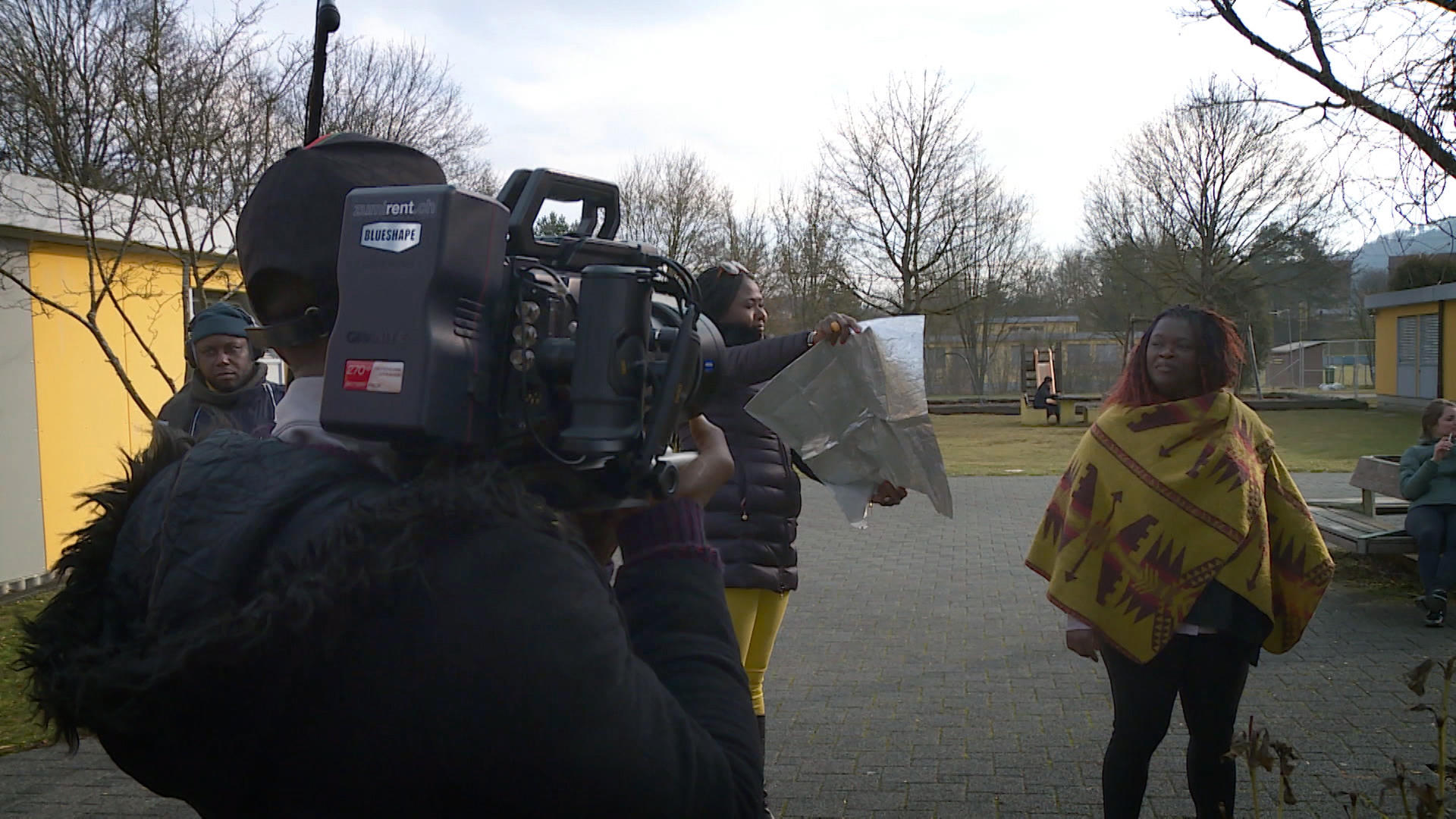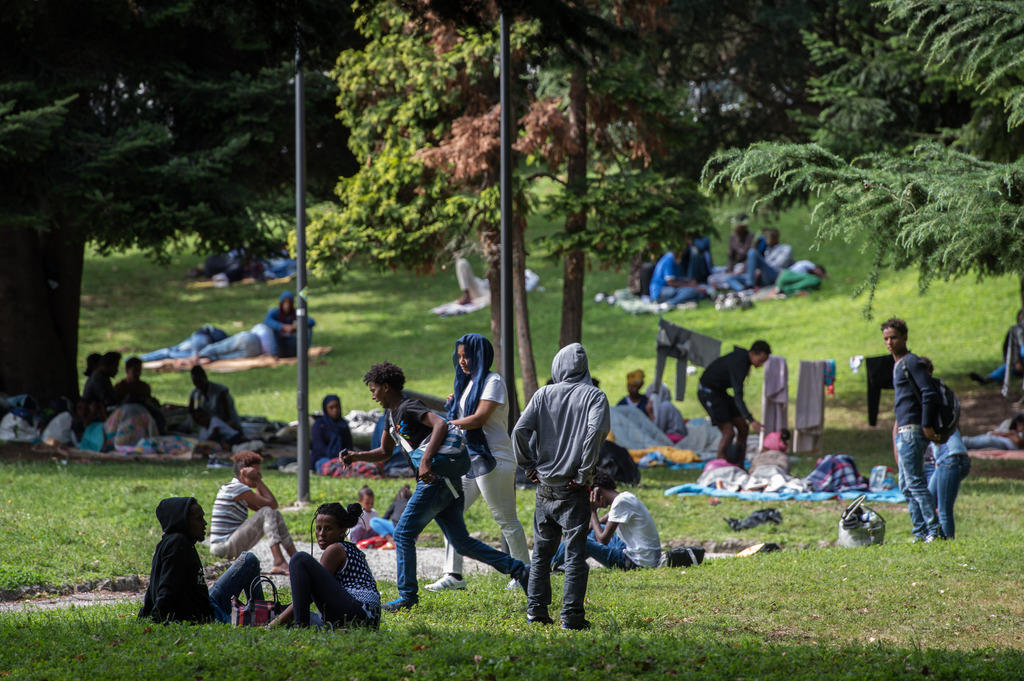‘Don’t come to Switzerland’ – the anti-tourism campaign

Debunking the myth of “Paradise Switzerland” and informing African migrants about the risks of travelling to Europe is the goal of a Swiss-funded television series set in Nigeria. The images are very far from the traditional tourist campaigns featuring sun, mountains, lakes and outdoor cafés.
Living in Switzerland is not always easy – as Joshua’s story shows. The young Nigerian, denied asylum by the Swiss authorities and now living in Switzerland illegally, is the protagonist of “The Missing Steps”, a Swiss-Nigerian co-production made as part of the migration partnership signed by the two countries in 2011.
The 13-episode series has a clear aim: to deter Nigerian migrants from searching for a better future in Switzerland.

More
Nollywood against migration
“We want to provide objective information on migration, showing that the crossing [of the Mediterranean] is dangerous and that the chances of Nigerians being granted asylum are low. We also intend to explain that life for illegal immigrants in Switzerland is not easy,” said Lukas Rieder, spokesman for the State Secretariat for Migration (SEM), which funded the entire CHF450,000 ($445,500) series budget.
It is not the first time that the SEM has embarked on a such a project. In 2007, it funded a two-minute advert shown in several African countries such as Cameroon and Nigeria. The message? “Don’t believe everything you are told.”
The clip drew criticism because it showed Switzerland “in a bad light”. In 2013, it was Kosovo’s turn, with videos targeting young people posted on YouTube.
Switzerland is not the only country to fund campaigns like this. Germany, Italy and Australia have also produced videos with aggressive messages aimed at migrants.
Effective?
But does this strategy work? Jill Alpes, a migration expert, is not convinced that such films have an effect on migration flows.
“Most people are fully aware of the risks of migration, thanks to friends and family,” Alpes, who conducted a study in Cameroon on how migrants inform themselves before leaving for Europe, told Swiss public television, SRF.
“Not only do they not get any new information, but people choose carefully which sources to trust.”
Amnesty International also wonders about the impact of these campaigns. “Clearly migrants should be informed correctly on Swiss law and asylum process,” the organisation’s Denise Graf told swissinfo.ch.
“But first of all Switzerland should work to improve the human rights situation and the allocation of resources in Nigeria. They are fundamental aspects if we want people to have the opportunity to stay in their own country.”
Spot the difference
Of course not all campaigns try to turn foreigners off Switzerland. Migrants and tourists obviously fall into very different target groups for Swiss Tourism.
Asylum applications
In 2016, 27,207 asylum applications were lodged in Switzerland. Of these, 1,106 came from Nigerian citizens (4.1%).
The same year, only three people received asylum and six were granted temporary admission (of 1,261 cases examined).
Adapted from Italian by Thomas Stephens

In compliance with the JTI standards
More: SWI swissinfo.ch certified by the Journalism Trust Initiative












You can find an overview of ongoing debates with our journalists here . Please join us!
If you want to start a conversation about a topic raised in this article or want to report factual errors, email us at english@swissinfo.ch.